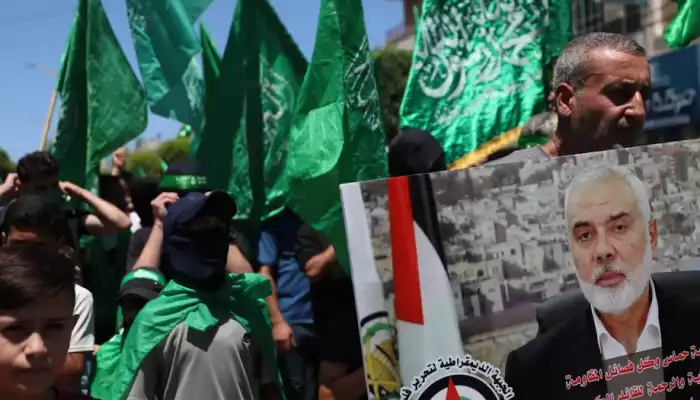
The recent assassinations of two top leaders of Hezbollah and Hamas, militant groups that both receive support from Iran, have pushed tensions across the Middle East to a new level.
On Tuesday, Israeli forces said that they had assassinated Hezbollah commander Fouad Shukur in Lebanon's capital Beirut. His body was found Wednesday evening. Israel blames Shukur for orchestrating a deadly attack in the Israeli-controlled Golan Heights, which killed 12 children.
On Wednesday, Ismail Haniyeh, the political leader of Hamas, was killed in Iran's capital Tehran. Israel had repeatedly named Haniyeh as a target following the October 7 attack on Israel by Hamas, which is classified as a terrorist organization by Germany, the European Union, the US and others. The attack, in which 1,200 people died, triggered the current war between Israel and Hamas in Gaza. The death toll is estimated to be almost 40,000.
So far, Israel has not yet commented on the second assassination, but it is widely believed to be behind the attack.
The armed wing of Hamas has already issued a statement, vowing that the killing of Haniyeh will have "major repercussions."
Kelly Petillo, a Middle East researcher at the European Council on Foreign Relations (ECFR) said that the two assassinations would have a severe impact on the entire region.
"It is too early to say what results this will bring but the consequences will be reverberating, for the worst," she told DW.
She explained that the assassinations would increase the popularity of both Hamas and Hezbollah, whose military wing is also categorized as a terror organization by the US and others.
"By killing Haniyeh, Israel has wiped away Hamas' political leadership, which was the more moderate force within the movement," Petillo added, pointing out that Haniyeh was a crucial part of cease-fire negotiations brokered by Qatar, Egypt and the US.
"The military arm will gain much more support from many Palestinians," Petillo predicted. "As they will be able to say: 'Look, Haniyeh engaged in diplomacy and look where it got him.'"
"It also puts Yahya Sinwar, the more extremist leader of Hamas' military wing, at the helm," she added.
The Islamist Hamas movement, which has ruled Gaza since 2007, is divided into two factions. The political leadership is based in Qatar, while its military wing remains in Gaza. Its leader, Yahya Sinwar, has ruled Gaza since 2017.
Blow to reconciliation deal and cease-fire negotiations
Haniyeh's death could also have an impact on a recent China-brokered reconciliation deal between 14 Palestinian factions, which is key to deciding who will rule Gaza after this war.
Furthermore, it could threaten negotiations over the release of the remaining Hamas-held hostages, the liberation of prisoners and a permanent cease-fire.
"The implications of all this are still difficult to assess at this point in time, but it is to be feared that all efforts to reach a hostage deal, which was supposedly on the verge of a breakthrough in recent weeks, are now a distant prospect for the time being," Simon Wolfgang Fuchs, an associate professor at the Hebrew University in Jerusalem, told DW.
"Hamas will not be able to go back to business as usual," he forecast.
Enormous pressure on Hezbollah, Iran
The same could be true for Hezbollah in Lebanon as well.
"The killing of Fouad Shukur, who was the number two leader means that Hezbollah is under enormous pressure to retaliate," ECFR's Petillo told DW.
She said that for Hezbollah, more than a red line had been crossed between yesterday and today.
For Petillo, not only is potential escalation between Hezbollah and Israel worrying, but also the fact that the former could "re-calibrate its involvement" in support of Hamas.
"So far, Hezbollah had always made very clear that it would stop the strikes and tit-for-tat with Israel once a cease-fire is reached," she said.
She added that the assassination of Shukur had "severely jeopardized" Hezbollah, both "domestically within the movement" but also "from Iran's side given the blow of Haniyeh's killing."